Buch Wien 24
Literature from Southeast Europe
TRADUKI at the Vienna Book Fair 2024
Literature from Southeast Europe
TRADUKI at the Vienna Book Fair 2024
TRADUKI presents new writing from Southeast Europe and offers interesting encounters with writers from Slovenia, Bulgaria, Croatia, Romania, Bosnia and Herzegovina and North Macedonia. Visit us at our stand A32!
ProgrammeWith: Mircea Cărtărescu, Ernest Wichner
Moderator: Ronald Pohl
‘The pistol barrel still in his mouth, brains scattered on the red table.’ Before the British colonial army reduced the mountain fortress of Magdala to rubble and could take him hostage, the Ethiopian emperor put an end to his life on Easter Sunday 1868. But not as a crowned despot, not as a plundering pirate, but as a boyar servant from Wallachia, at least according to Mircea Cărtărescu’s latest breathtaking novel Theodoros (t. Ernest Wichner, Zsolnay 2024). The award-winning Romanian author will be discussing his novel with translator Ernest Wichner on the Der Standard stage.
With: Nikola Madžirov, Tanja Maljartschuk
Moderator: Katja Gasser
Interpreter: Alexander Sitzmann
Speaker: Nikolaus Kinsky
Ever since the French jurist, philosopher and humanist Michel de Montaigne founded essay writing in the 16th century, this literary form of discourse has become important again and again
The Ukrainian-Austrian prose writer Tanja Maljartschuk interrupted work on a new novel in the wake of Russia’s war against her homeland and has since turned to the essay. Poet Nikola Madžirov from North Macedonia has also written more essays in recent years, thought-provoking texts about his origins and the situation in Southeast Europe.
In conversation with literary critic Katja Gasser, we will discuss not only their personal turn to this literary genre, but also the significance of the essay for social debate in general.
In cooperation with ÖGL.
With: Mircea Cărtărescu, Ernest Wichner
Moderator: Karoline Thaler
‘The pistol barrel still in his mouth, brains scattered on the red table.’ Before the British colonial army reduced the mountain fortress of Magdala to rubble and could take him hostage, the Ethiopian emperor put an end to his life on Easter Sunday 1868. But not as a crowned despot, not as a plundering pirate, but as a boyar servant from Wallachia, at least according to Mircea Cărtărescu’s latest breathtaking novel Theodoros (t. Ernest Wichner, Zsolnay 2024). The award-winning Romanian author will be discussing his novel with translator Ernest Wichner.
With: Faruk Šehić, Rebekka Zeinzinger
Moderator: Silvia Stecher
Interpreter: Mascha Dabić
In Faruk Šehić’s volume ‘My Rivers’ (t. Rebekka Zeinzinger, parasitenpresse 2024), the four major European rivers Loire, Spree, Drina and Una are silent witnesses to past events and the starting point for a lyrical exploration of the themes of war, society and nature. The author unfolds powerful images between reality and fantasy in free verse and haunting linguistic rhythms, which his translator Rebekka Zeinzinger has impressively rendered into German.
In cooperation with IG Übersetzerinnen Übersetzer as part of TRADUKI.
With: Marija Girevska, Nikola Madžirov
Moderator & interpreter: Alexander Sitzmann
Speaker: Nikolaus Kinsky
Poet and essayist Nikola Madžirov from North Macedonia has been one of the most important literary voices in South-East Europe for many years and is also one of the most internationally recognised representatives of contemporary literature from this region. Marija Girevska is a renowned writer and translator. In conversation with the translator Alexander Sitzmann, they will not only provide information about their own writing, but also present the new issue of the Graz-based literary magazine Lichtungen. Its current issue is focussed on North Macedonian literature.
In cooperation with Lichtungen
With: Miljenko Jergović
Moderator: Günter Kaindlstorfer
Interpreter: Mascha Dabić
Speaker: Nikolaus Kinsky
Das verrückte Herz is the follow-up and twin volume to Sarajevo Marlboro, with 29 new stories from besieged Sarajevo – translated into German for the first time. 30 years after the publication of his short story collection Sarajevo Marlboro, which made Miljenko Jergović instantly famous in 1994, he returns to the city in Das Verrückte Herz. Sarajevo Marlboro remastered (t. Brigitte Döbert, Suhrkamp 2024). He tells of daily survival during the siege and the horrors of war, of hunger, fear and small gestures of solidarity – full of sadness and humour.
With: Zdravka Evtimova
Moderator: Annemarie Türk
Interpreter: Alexander Sitzmann
Speaker: Cornelia Köndgen
The volume Maulwurfsblut (t. Andreas Tretner, Alexander Sitzmann and Elvira Bormann-Nassonowa, eta Verlag 2024) brings together 22 short stories, all of which tell of life and everyday life in Pernik, a provincial town not far from Sofia, in post-industrial times. A ‘Bulgaria in a nutshell’ in times of transformation. In the ruins of the old order, patriarchal relations are crumbling. While the men have moved out, are toiling in construction in Dubai and harvesting olives in Tuscany or are stranded somewhere, their wives are busy at home with the survival of the family, expanding their horizons, asserting themselves and their dignity. Every 14 days, Zdravka Evtimova publishes a new short story on the OFFnews.bg portal. With a sense and heart for the socially deprived and a straightforward, gripping style of writing, she is one of the most popular authors in her country, both at home and in the world.
In cooperation with Haus Wittgenstein/Bulgarisches Kulturinstitut
With: Miljana Cunta
Moderator: Petra Nagenkögel
Interpreter: Daniela Kocmut
Speaker: Cornelia Köndgen
In this prose-poem cycle, which is available in a bilingual, bibliophile edition from Edition Thanhäuser (t. Matthias Göritz and Amalija Maček, 2022) the Slovenian poet Miljana Cunta tells how a little girl visits an old seamstress, observes her and accompanies her through the day, from 6am to 5am, when the night ends and perhaps a life ends with it. In twenty-four short texts, she lets the reader participate in this cautious approach of youth to old age, in the discovery of the secrets of life and how vivid the past can be.
In cooperation with JAK and SKICA Wien.
With: László Végel
Moderator: Annemarie Türk
Interpreter: Emese Dallos
Speaker: Nikolaus Kinsky
This autobiographical novel (t. Christina Kunze, Wieser Verlag 2024) tells the story of his family over three generations. It takes us into a rural, plebeian world. The first generation are the grandfathers, who were born at the end of the 19th century and whose lives were drastically changed by the Treaty of Trianon. They suddenly found themselves in a different state and were forced into a different culture and language. Their cultural heritage was thus lost, and with their children they learnt to find their way in a new world. This is continued in the next generations of grandchildren and continues to have an effect to this day.
Homelessness and being an outsider were and are Végel’s central themes. The multi-ethnic city of Novi Sad stands for cultural diversity that was initially hoped for, then forced and finally lost after the caesura of the Balkan War.
In cooperation with Collegium Hungaricum
With: Robert Perišić
Moderator: Annemarie Türk
Interpreter: Mascha Dabić
Speaker: Nikolaus Kinsky
Robert Perišić has been one of the best-known authors in Croatia today since his first novel, Our Man in Iraq (2007), was celebrated by the American and British press. Horror und hohe Unkosten (t. Klaus Detlef Olof, Brot und Spiele 2024) is the first collection of twenty of his short stories to be published in German. Perišić depicts the psychological conflicts of his characters in the Balkans, which were torn apart by the last war. This is the book of a generation that has to come to terms with the consequences of brutality, poverty and, of course, love. In a subtle style, Perišić tells of a different Europe that, once the reader has immersed themselves in it, will not let go any time soon.
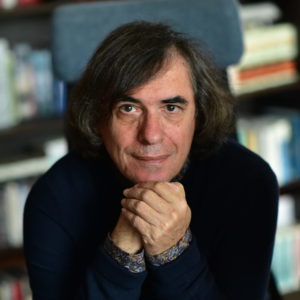
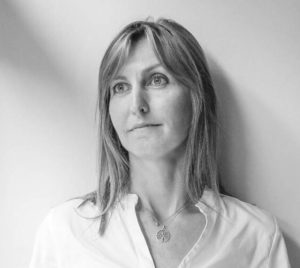
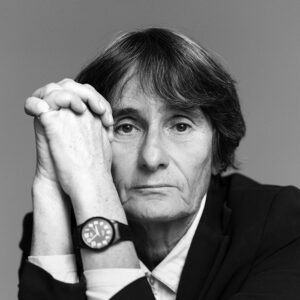
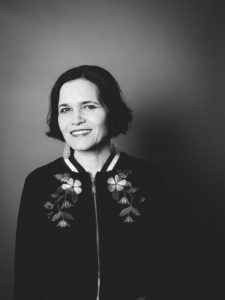
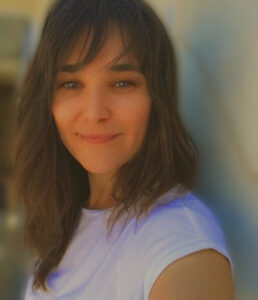
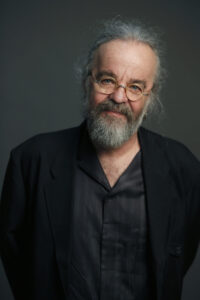
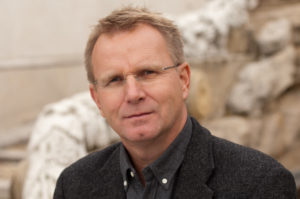
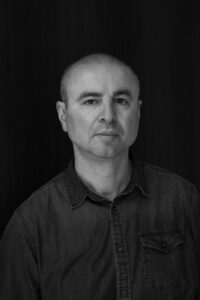
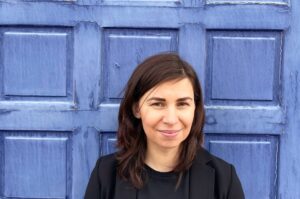
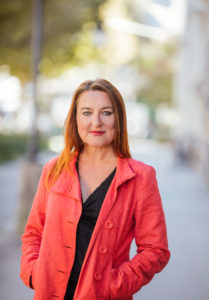
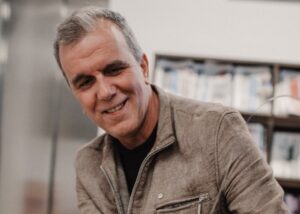
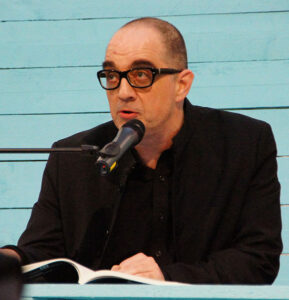
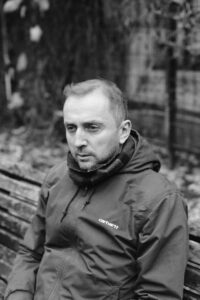
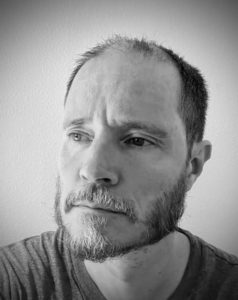
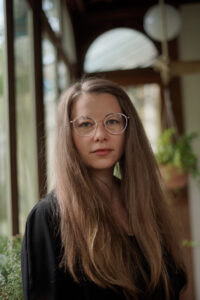
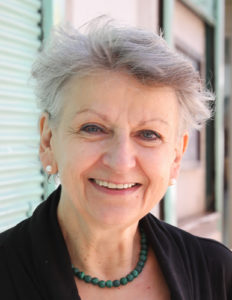
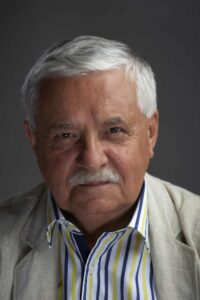
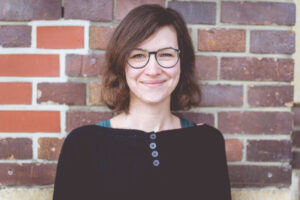
Information about our TRADUKI programme at past editions of the Buch Wien can be viewed here: